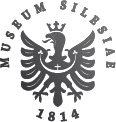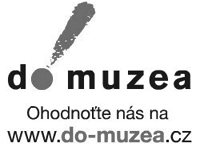PUBLIKAČNÍ ETIKA ČASOPISU
Zásady publikování v časopise Slezský sborník se uplatňují v souladě s etickým kodexem publikační praxe, který je definován a ukotven v rámci Comitee on publication ethics (COPE).
1) Všechny rukopisy budou recenzovány anonymně na základě svého obsahu, nikoliv bez ohledu na věk, pohlaví, vyznání, rasovou či etnickou příslušnost, zemi původu, sexuální a politickou orientaci autorů. U všech rukopisů se zachovává přísně důvěrný přístup. Redakční tým nesmí jakékoliv informace sdělovat nikomu jinému než příslušným autorům a určeným (potenciálním) recenzentům. Informace a myšlenky nabyté při recenzním řízení zůstávají důvěrné a nesmí jich být využito k osobnímu prospěchu.
2) Nabídnutý rukopis k recenznímu řízení nesmí souběžně procházet recenzním řízením jinde. Souběžné zaslání rukopisu více než jednomu časopisu se považuje za neetické publikační chování a je nepřijatelné.
3) Autoři se zavazují, že redakci poskytnutý text je originální, původní dílo, a že nebylo dosud v jakékoliv formě publikované. Pokud byl text dříve publikovaný, vyžaduje se od autorů jeho důsledné přepracování a doplnění. Přepracovaný a doplněný text musí obsahovat odkaz na původní text, zdůvodnění provedených změn a vyjádření posunu v poznání.
4) Autoři musí důsledně a řádně přiznávat zdroje (práce jiných autorů, historické prameny), které ovlivnily povahu předkládaného textu. Plagiátorství nebo využívání nedůvěryhodných zdrojů je nepřijatelné.
5) Autoři zodpovídají za uvedení všech spoluautorů textu. Redakce odmítá jakékoliv formy tzv. ghostwritingu či "čestného autorství" (guest / honorary authorship).
6) Autoři zodpovídají za správnost a přesnost uvedených údajů. Týká se to profesionální afiliace (pracoviště autora, kontaktní emailová adresa), osobních údajů a případných zdrojů finanční podpory, díky nimž text vznikl.
7) Obsah textu musí být v souladu s charakterem, zaměřením a posláním časopisu.
8) Při tvorbě textu jsou autoři povinni respektovat redakcí stanovené pokyny pro autory, které se týkají charakteru, zaměření, rozsahu a technické stránky příspěvku.
9) Kvalita textu musí splňovat standardy a úroveň vědecké práce.
10) Pokud autoři zjistí nedostatky nebo nepřesnosti ve své práci, jsou povinni o tom neprodleně informovat redakci časopisu a spolupracovat na opravě textu.
11) Autoři jsou povinni upravit text podle recenzních posudků a poslat ho redakci ve stanoveném termínu. Pokud se neztotožňují s výhradami recenzentů, musí své důvody uvést v průvodním dopise. Redakční tým ve spolupráci s recenzenty zváží relevanci uvedených argumentů a potřebu případné úpravy textu.
12) Za rozhodnutí o tom, které z článků zaslaných časopisu by se měly publikovat, odpovídá vědecký redaktor časopisu. Dbá přitom na doporučení recenzentů a řídí se pravidly časopisu. O svých rozhodnutích informuje redakční radu.
RECENZNÍ ŘÍZENÍ
Všechny odborné studie či materiálové studie procházejí oboustranně anonymním recenzním řízením. Pro vypracování recenzního posudku slouží standardní formulář, který posuzovatel vyplní, případně přidá slovní zhodnocení a připomínky a podepsaný dodá výkonnému redaktorovi. Recenzní řízení může mít maximálně dvě kola, poté rozhoduje redakční rada. Každou odbornou studii posuzují minimálně dva recenzenti, v případě materiálové studie postačuje jeden posudek. Na základě recenzního řízení rada text přijme, vrátí k přepracování nebo zcela zamítne. O výsledku přijímacího řízení je autor textu informován písemně (elektronickou poštou), přičemž mu jsou zprostředkovány posudky. Respektování požadavků recenzentů a formálních standardů časopisu je podmínkou publikace jakéhokoli textu. O publikování zpráv v kronice, recenzí a anotací rozhoduje redakční rada.
PUBLICATION ETHICS
Principles of publishing in the journal Slezský sborník are applied in accordance with the code of ethics of publishing experience, which is defined and anchored by international forum Publication Ethics Committee (COPE).
1) All manuscripts are reviewed anonymous based on their content without regard for age, gender, confession, rase/ethnicity, country of origin or sexual and political orientation of the authors. All manuscripts submitted for peer-review are kept strictly confidential. The Academic Board (editorial staff) of the journal must not disclose any information about a submitted manuscript to anyone other than the corresponding author or reviewers (as well as potential ones). Information and ideas gained through peer review must be kept confidential and not used for personal advantage.
2) Submitted manuscripts must not have been published elsewhere. Submitting the same manuscript to more than one journal contemporaneously constitutes unethical publishing behaviour and is unacceptable.
3) The authors agree that the submitted text is authentic and original work, has not been published yet in any form. If the text has already been published prior to administration, the author is required to fundamentally remake or complete it. The revised or amended text has to include a link to the original paper, justificiation of changes and the expression of advance in knowledge.
4) The authors have to strictly and properly confess their sources (articles/books/ideas of other authors, historical sources) that have been influential of the reported work. Plagiarism or use of untrusted source sis unacceptable.
5) Authors are responsible for the correct specification of all co-authors. The editorial staff refuse any form of so called ghostwriting or guest / honorary authorship.
6) The authors are responsible for the correctness and accuracy of the data. This applies to professional affiliation (workplace, email contact), personal data as well as sources of financial support and information about the project of which the contribution was made.
7) The content of the text must be consisent with the character, focus and mission of the journal.
8) Within the creating of text, authors are obliged to respect the guidelines for authors, established by editorial staff, concerning the quality, intention and technical norms of paper.
9) The quality of the text must meet the standards and level of scientific work.
10) If authors find out any irregularities or serious misconduct in the text, they should inform the Academic board regardless the phase to the peer review process and correct mistakes.
11) Authors are required to edit their text according to reviewers' opinions and send it to the managing editor until the deadline with the cover letter including the description of changes. If they do not agree with the point of view of reviewers, their reasons have to be stated in the cover letter. The Academic board in collaboration with reviewers will consider the relevance of mentioned arguments and the need of potential revision of the text.
12) The Editor in Chief is responsible for deciding which of the articles submitted to the journal should be published. He follows the reviewers? recommendations and consults and informs the Academic Board of his decision.
REWIEW PROCEDURE
All scientific studies or material studies are subject to mutually anonymous review procedure. The reviewer fills in a standard form, possibly supplies also oral evaluation and comments, signs it and sends to the Managing Director. The review procedure may have two rounds at the most; then the editorial board decides. Each scientific study is assessed by at least two reviewers; in case of material study one review is sufficient. On the basis of the review procedure, the board accepts the text, returns it for overworking or rejects it completely. The authors of the texts are informed about the result of the review procedure in writing (via email); they are also provided with the reviews. The condition for publishing any text is the compliance with requirements of the reviewers and formal standards of the Journal. Editorial board decides on publishing information in the chronicle, reviews and annotations.
Ownership and Copyright: The publisher is Slezské zemské muzeum, Czech Republic. The copyright is owned by Slezské zemské muzeum, Czech Republic.
Publishing License Information: By submitting a contribution for publication in Časopis Slezského zemského muzea. Série B – vědy historické, the author of the text gives consent to the publication of the contribution on the journal's website, which can be accessed for free.
Poslední aktualizace článku: 23.08.2023
Vytisknout celý článek








